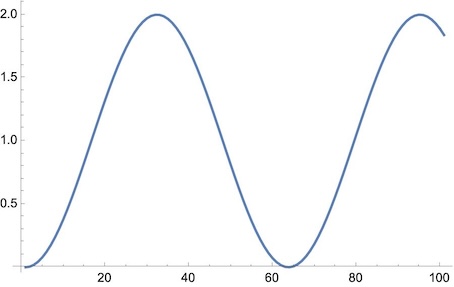Suppose I have the given code:
usol[t_, x_]:= NDSolveValue[{D[u[t, x], x] == Sin[x], u[t, 0] == 0}, u[t, x], {x, 0, 10}]
and I need to find the value of usol[1,1]. For that I tried this method:
answer = Through@*{usol[1, x]}
answer[1]
Normally Through@* works for interpolating functions, then why is it not evaluating here? Or in other words how can I remove the [x] dependence from the interpolating function to make it work?
Furthermore, how can I make a table with x=1 and varying t from 0 to 5 using the interpolating function?

